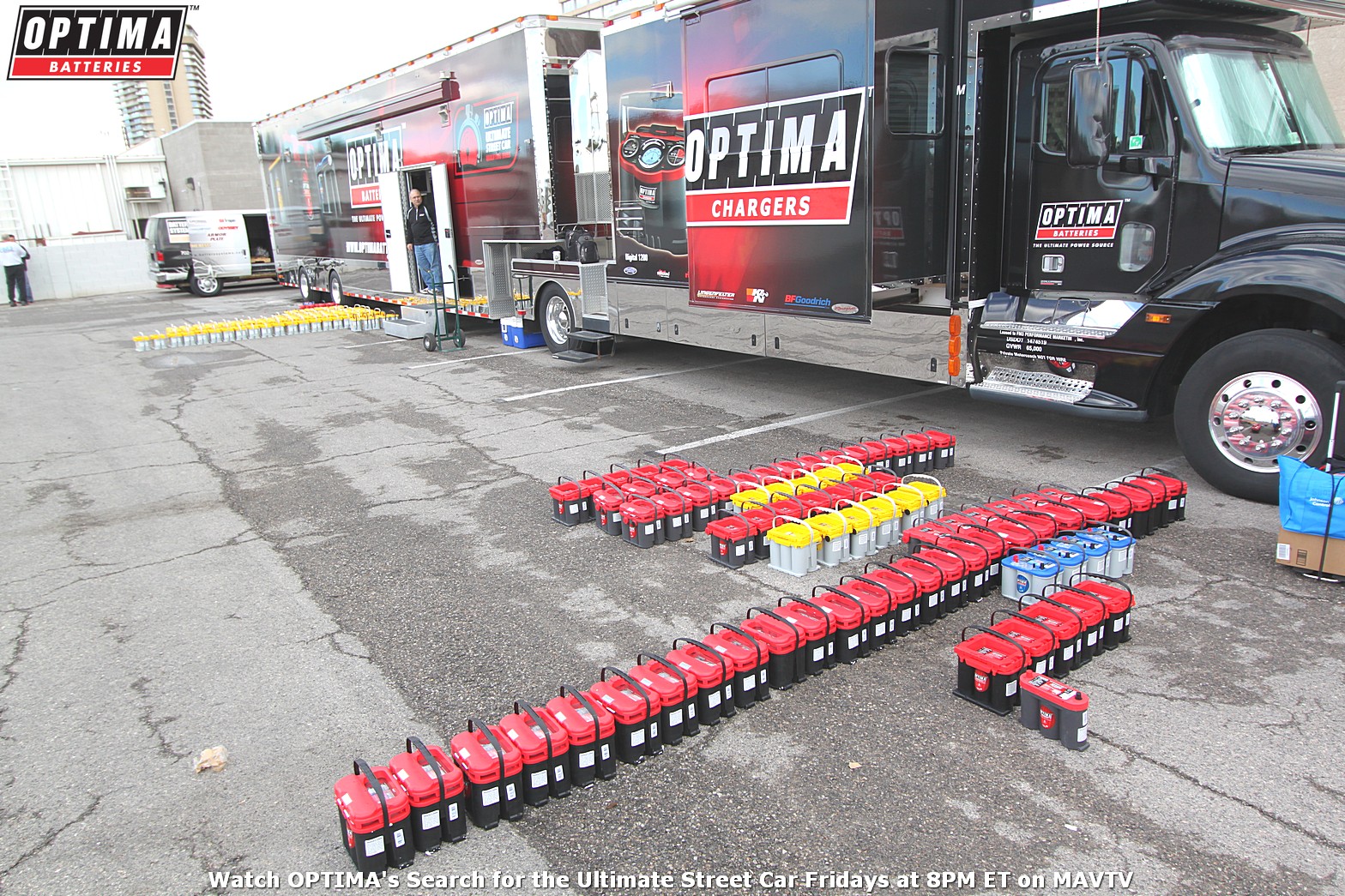How Do You Make Your Battery Last Longer?

- Sponsor
- OPTIMA Batteries
- Location
- Platinum Lot, Las Vegas Convention Center


Whether you buy a battery for your car, truck, boat or RV, it's not an inexpensive purchase. Consequently, it's a good idea to do everything you can to maximize battery performance and lifespan. So how can you accomplish that? The simplest answer we can give you is to keep your battery fully-charged whenever possible, but what does that mean?
For REDTOP OPTIMA batteries (and the 34M BLUETOP), fully-charged voltage is about 12.6-12.8 volts. For YELLOWTOP & BLUETOP OPTIMA batteries (except the 34M BLUETOP), fully-charged voltage is about 13.0-13.2 volts. For vehicles that don't see regular use or may only see seasonal use, we would strongly recommend maintaining proper voltage with a quality battery charger or maintainer and it's even a good idea to top off the charge on your daily-driven vehicles about once a month (or more often, if needed).
Did you know the more deeply you discharge your battery when you cycle it, the fewer cycles you'll get out of it? That means a bank of Group D34M BLUETOP batteries may get discharged by 50% in a trolling motor application, whereas a bank of larger Group D31M BLUETOP batteries may only get discharged by 20% in the exact same trolling motor application. Even though those D31M BLUETOP batteries may cost more up front, they may last far longer than smaller, less expensive batteries. If your application has the option to choose between batteries of different sizes and you are not concerned about the additional weight of larger batteries, the larger batteries will likely last longer.
So what else can you do to make your batteries last longer? Batteries in temperate climates tend to last longer than those in extreme (both hot and cold) climates. If you have the opportunity to keep your batteries out of extremely hot or extremely cold temperatures, that will also probably help make them last longer. Automakers know this and as a result, many are now moving batteries out of hot engine compartments and into much cooler locations either in the trunk or inside the passenger compartment. If you relocate your battery to any enclosed area, like a trunk or interior, make sure your battery is properly-vented to the outside atmosphere. In the unlikely event the battery is overcharged, the fumes can be both flammable and toxic!
So now that we've covered some common ways to make your battery last longer, let's take a look at some of the bad advice we've come across on the Internet about extending battery lifespan. The first one we'll cover is the myth that placing a battery directly on concrete or asphalt, like we did in the photo above, is in any way bad for a battery. Unless you drop a battery (and we would never recommend doing that), concrete and asphalt won't hurt your battery at all. If you are storing a battery, we recommend a cool, dry location, even if that happens to be the concrete floor in your basement.
We also hear a folks suggest lead-acid car batteries eventually develop a "memory" that must be erased or somehow re-set, either by deeply-discharging and fully-recharging the battery or by charging a battery at a really high amperage rate. That's also false. As we've already mentioned, the more deeply you discharge your battery and the more often you do that, the shorter the lifespan of your battery. Also, many batteries, including all OPTIMA batteries are sealed, meaning you cannot add distilled water or electrolyte to them. That means if you charge a sealed battery at too high of an amperage rate and the battery vents or gasses to relieve the pressure created by that high amperage charge, the electrolyte you lose when the battery is venting cannot be replaced and you will shorten the lifespan of your battery. We recommend charging OPTIMA batteries at a maximum rate of 10 amps.
Perhaps the most common fallacy we hear about how to make batteries last longer is to periodically start up a stored vehicle and let it idle for a few minutes. We cannot speak to any mechanical benefits this may offer to a vehicle, but we can tell you this may have a net negative impact on battery voltage. If the battery isn't stored on a maintainer, the energy consumed during storage and starting may not be replaced by the vehicle's charging system while it sits and idles, although you may accelerate the demise of your vehicle's alternator, as it works harder than it should to put current back into your discharged battery.
That brings us back to the regular use of a quality battery charger or maintainer. These useful tools will pay for themselves with the first battery they save, whether that is in your car, truck, boat or RV!
